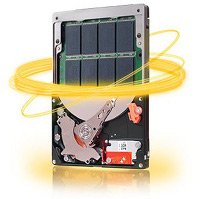Using sudo behind a proxy
http://thelittleican.blogspot.in/2013/09/unable-to-add-ppa-behind-proxy.html
Using sudo behind a proxy
http://thelittleican.blogspot.in/2013/09/unable-to-add-ppa-behind-proxy.html
All you need to know about encoding / decoding JSON in go
http://attilaolah.eu/2013/11/29/json-decoding-in-go/
My TF201 is well and truly out of warranty now so I thought I might try and get dual boot to ubuntu running on it. I’m still trying to find some up to date instructions, and kind of feeling my own way by amalgamating approaches from various sources. I’ll let you know how I get on.
In the meantime, when you are trying to install an image via fastboot and you keep getting stuck at:
< waiting for device >
with no response; try running it with sudo!

I haven’t used NetBeans for a year or so as a development IDE. I had to use eclipse at work and it just seemed easier to us that at home as well. However, I recently decided to re-shake the beans, which I always found more responsive and functional then eclipse.
The c++ edition of NetBeans, and I assume this is generic functionality allows remote development within the IDE. This allows you to edit, debug and run code on another server. You can run this in a variety of modes, all using SSH so it is nice and secure and does not require any fancy server side software.

I can see this being very useful for developing on the Raspberry Pi for example, instead of using a remote desktop or for local development and testing on a big meaty server….
I’ve tried building a simple hello world project on a local server and it feels very responsive, and was easy to set up. Have a look at https://netbeans.org/kb/docs/cnd/remote-modes.html for more information.
What is new in ECMAScript 6?


I recently installed a Seagate 7200rpm 750GB Momentus XT in my m11x r2 after a friend telling me about the hybrid technology. It has an 8gb SSD integrated into the 750Gb disk drive, giving you a balance of SSD like read / write performance with out sacrificing the storage space.
It is hard to quantify how fast this drive actually is, but both Ubuntu and windows boot and feel faster in day to day usage. The drive’s firmware claims to cache commonly used files and automatically adapt to your usage, and it does seem to learn in this manner.
Copying files about and running the standard Disk Utility drive benchmark gives read speeds averaging at about 100 MB/second. I didn’t do the write test as this requires the drive to be unmounted and I was not totally convinced that it would be non destructive… but here is the read test results:
Ive go the ST750LX003-1AC154 (SM12) model and I am very impressed and thank Binky for the recommendation 😉
